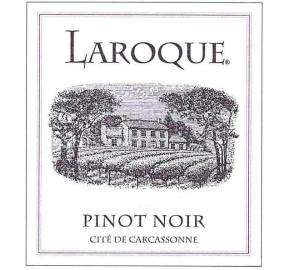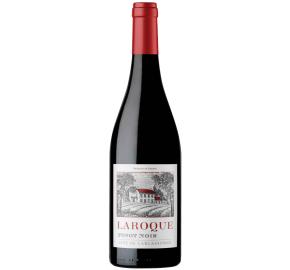Laroque - Pinot Noir 2022
- Producer Aquitaine
- Blend 100% Pinot Noir
- Country France
- Region Languedoc Roussillon
- Appellation Cite de Carcassonne
- UPC 873964001907
Log in to view pricing and order online
Don't have an account? Register here
Item# 1119-22R
Estate
The Laroque vineyards are located nearby the city of Carcassonne, famous ll over the world for its medieval city and the Canal du Midi, both classed as World Heritage sites by UNESCO. The soil on which the vines are planted date back to the pre-historic Jurassic Period. Recent excava-tions have uncovered brontosauras dinosaur bones and fossilized dinosaur eggs. The vineyards which produce Laroque make an exceptional Pinot Noir that rivals the wines from Burgundy region in aromas, structure and minerality. Situated between the Pyrenees to the south and the Black Mountains to the north, Carcassonne enjoys a privileged climatic position where the excesses of the Mediterranean climate are tempered by the softness of the Atlantic. This results in sunny, hot, dry days, but very cool nights. This extraordinary harmony in nature gives the Laroque Pinot Noir its unique signature.
Tasting Notes
Vinification
Fermentation in temperature controlled stainless steel tanks between 22-25°C for 14 days.
Fermentation with fresh oak to enhance aromas and to give structure to the wine.
Remontage (pumping over) 3 times daily until delestage (racking of the wines during fermentation) to soften the tannins. Then 2 pumping-overs daily towards the end of the maceration period.
Natural malolactic fermentation in epoxy lined concrete tanks.
Fining and filtering before bottling.
Viticulture
Terroir of Carcassonne is characterized by hillside vineyards with double climatic influences and two alternating winds.
Winds from the Mediterranean bringing warm and humid softened by the “cers” winds coming from north-west of Narbonne.
Dry and temperate winds from the Atlantic.
Average age of vines is 20 years.
Density of 4500 to 5000 vines/hectare.
Environmentally friendly viticulture.
Guyot vine training.
High canopies for better quality grapes and yield management.
Mechanical working of the soils with debudding to limit production.
Night harvest 4 to preserve freshness and avoid oxidation of the must.
Harvest took place between September 12 and 14.


